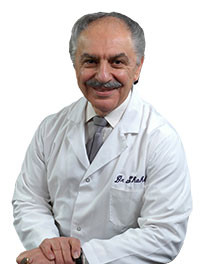PRP for Plantar Fasciitis in Paterson, NJ
What Is Plantar Fasciitis?

Plantar fasciitis is a common cause of heel pain characterized by inflammation of the flat band of tissue (plantar fascia) that spans across the bottom of the foot, responsible for connecting the heel bone to the toes and providing support for the arch of the foot.
Individuals that suffer from chronic plantar fasciitis often experience a sharp, stabbing pain in the middle of their heel or along the arch of their foot. The pain from plantar fasciitis is usually worse in the morning and then dissipates as one gets up and moves around. Plantar fasciitis often occurs secondary to overuse and is common in athletes who overtrain or undergo rigorous hill work or speedwork. Plantar fasciitis also occurs in individuals who are overweight, spend quite a bit of time standing all day, or wear shoes with inadequate support.
How Is Plantar Fasciitis Treated?
Common treatments for plantar fasciitis include resting the foot, icing the heel, taking over-the-counter pain relievers, stretching the calf and using orthotic inserts in shoes. Steroid injections may be recommended as a conventional treatment modality. Surgery can also be an option for those who fail to see an improvement in symptoms after 6 to 12 months.
For individuals who experience little to no improvement in chronic plantar fasciitis utilizing various conventional treatments or wish to utilize more natural treatment options, platelet-rich plasma (PRP) injections are a promising treatment modality for plantar fasciitis, particularly when surgical treatment is not an option. PRP is a concentration of growth factors obtained from the patient's blood which harness the body's natural healing properties to repair damaged and inflamed ligaments.
Unlike surgery and medications, PRP injections offer a safe treatment option without side-effects, as well as minimal risks associated with injections. To schedule a consultation with a healthcare practitioner in Paterson who specializes in PRP for plantar fasciitis, call (201) 806-6099 or contact Dr. M.T. Shahab online.
How Does PRP Work for Plantar Fasciitis?
PRP utilizes your blood in order to deliver a high concentration of platelets via injection directly into the area where injury is present. Platelets are a component of blood which are known as the 'first-responders' in the presence of injury. Platelets promote healing by accelerating new cell growth and helping to rebuild new tissue. Because platelets have been found to significantly enhance the regeneration of tissues, injecting a high concentration of platelets directly into the area of injury can accelerate the healing process.
Extensive research studies, both animal and human, have demonstrated the effectiveness and safety of PRP injections specifically for tendon injuries.
Research studies examining the use of PRP injections in patients with chronic plantar fasciitis have demonstrated:
- A significant decrease in pain from an average of 9.1 (pre-treatment) to 1.6 (post-treatment) on a visual analog scale.
- Six out of nine patients had complete resolution of symptoms after two months of treatment; 77.9% of patients had no symptoms after one year.
- In addition to decreased pain, PRP treatment for plantar fasciitis results in an increase in activity, improved function and a decrease in recovery time.
What to Expect During PRP Plantar Fasciitis Treatment
For patients in which plantar fasciitis significantly affects their quality of life or for patients who have failed to see an improvement with conventional treatment such as steroid injections, PRP injections should be considered.
A typical PRP plantar fasciitis treatment procedure may take 45 to 90 minutes which includes the blood draw and preparation of the blood for injection. The procedure begins by collecting a sample of your blood. A centrifuge is then used to separate the platelets from the plasma. A local anesthetic in injected in to the surrounding skin and soft tissue areas of the foot in order to minimize discomfort during the procedure. The PRP is then injected over the entire region.
Following the injection, you may need to wear a controlled ankle motion walker boot that helps decrease stress and provides support to the plantar fascia. The boot is worn for approximately two weeks before transitioning to a supportive shoe, preferable with a custom orthotic insert.
The typical treatment may include two PRP injections spread one month apart. If a series of injections is required, the blood may be drawn during the first visit and then frozen and thawed to be used for future injections.
Because PRP therapy is derived from the plasma of your blood and utilizes the body's innate healing abilities, it is a natural form of treatment and carries few risks. If you suffer from chronic plantar fasciitis, a customized protocol can be determined to help address your specific needs.
For additional information on PRP injection for plantar fasciitis, call (201) 806-6099 or contact Dr. M.T. Shahab online.
Medwell Orthopedics & Functional Medicine for Men & Women
Address
33 Central AveMidland Park, NJ 07432
(201) 806-6099
www.BergenCountyDoctors.com
Hours
Mon:
8:00 am - 8:00 pm
Tue:
2:00 pm - 7:00 pm
Wed:
8:00 am - 6:30 pm
Thu:
8:00 am - 1:00 pm
Fri:
8:00 am - 6:30 pm
Sat:
9:00 am - 1:00 pm
Sun:
By Appointment Only


